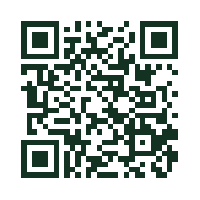Abstract
Corruption is a worldwide problem. Authors do not only agree that it should be addressed at a personal level, but they encourage everyone to become involved in the fight against corruption. For this to happen, individual transformation is a prerequisite. In this article, Chipapata, Fátima and Jacinto’s personal stories will bear witness to the potential role of Christian Higher Education (CHE) in the moral and spiritual transformation of individuals in local African communities. These three persons were extra-mural students enrolled at Hefsiba in Mozambique. That the impact of these three persons’ studies goes beyond the personal level is seen in the community in which they live and work. They consented to tell their stories starting with events before they commenced their studies, sharing experiences they had during their studies and describing how their studies impacted their lives, families, work and the community in which they live. In this article, the essence, purpose and content of CHE are addressed. It is argued that through CHE, students’ faith and education could be integrated. Apart from being competent in their professions, students would be committed to apply their competency to deal with the spiritual and material conditions of their communities. This might bring about a transformation of society.Die impak van Christelike Hoër Onderwys op die lewens van studente en gemeenskappe in Afrika. Korrupsie is ’n wêreldwye probleem. Outeurs stem nie net saam dat dit op persoonlike vlak aangespreek moet word nie, maar hulle moedig almal ook aan om betrokke te raak in die stryd teen korrupsie. Dit kan net gebeur as individuele transformasie reeds plaasgevind het. In hierdie artikel lewer Chipapata, Fátima en Jacinto se persoonlike verhale getuienis van die potensiële waarde van Christelike Hoër Onderwys (CHO) met betrekking tot die morele en geestelike transformasie van individue in plaaslike Afrikagemeenskappe. Hierdie drie persone was buitemuurse studente van Hefsiba in Mosambiek. Die impak van hierdie drie persone se studies strek verder as bloot hul persoonlike lewens. Dit is ook sigbaar in die gemeenskap waarin hulle woon en werk. Hulle het ingestem om hul verhale te vertel, beginnende by gebeure voor die aanvang van hul studies, hul ervarings tydens hul studies en hoe hul studies hul lewens, gesinne, werk en gemeenskap beïnvloed het. In hierdie artikel word die essensie, doel en inhoud van CHO aangespreek. Daar word geargumenteer dat studente se geloof en onderwys geïntegreer word deur CHO. Studente word dus nie net toegerus vir hul professies nie, maar behoort ook toegewyd te wees om konstruktief by die spirituele en materiële nood van hul gemeenskappe betrokke te raak. Dit mag moontlik ’n transformasie van die gemeenskap tot gevolg hê.
Copyright information
- Ownership of copyright in terms of the Work remains with the authors.
- The authors retain the non-exclusive right to do anything they wish with the Work, provided attribution is given to the place and detail of original publication, as set out in the official citation of the Work published in the journal. The retained right specifically includes the right to post the Work on the authors’ or their institutions’ websites or institutional repositories.
Publication and user license
- The authors grant the title owner and the publisher an irrevocable license and first right and perpetual subsequent right to (a) publish, reproduce, distribute, display and store the Work in any form/medium, (b) to translate the Work into other languages, create adaptations, summaries or extracts of the Work or other derivative works based on the Work and exercise all of the rights set forth in (a) above in such translations, adaptations, summaries, extracts and derivative works, (c) to license others to do any or all of the above, and (d) to register the Digital Object Identifier (DOI) for the Definitive Work.
- The authors acknowledge and accept the user licence under which the Work will be published as set out in https://creativecommons.org/licenses/by/4.0/ (Creative Commons Attribution License South Africa)
- The undersigned warrant that they have the authority to license these publication rights and that no portion of the copyright to the Work has been assigned or licensed previously to any other party.
Disclaimer: The publisher, editors and title owner accept no responsibility for any statement made or opinion expressed by any other person in this Work. Consequently, they will not be liable for any loss or damage sustained by any reader as a result of his or her action upon any statement or opinion in this Work.
In cases where a manuscript is NOT accepted for publication by the editorial board, the portions of this agreement regarding the publishing licensing shall be null and void and the authors will be free to submit this manuscript to any other publication for first publication.
Our copyright policies are author-friendly and protect the rights of our authors and publishing partners.

